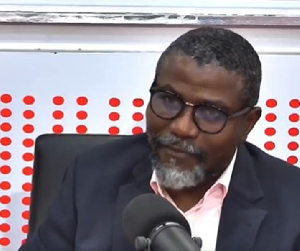The steel industry in Ghana is set to receive further boost, with the addition of 240,000 metric tons to the current installed production capacity of about one million metric tons.
The additional capacity will come from the construction of a steel manufacturing plant in Kumasi, funded through a loan facility of US$ 12 million from the International Finance Corporation (IFC) to Rider Iron and Steel Ghana Limited.
This follows an US$ 80 million investment made in the industry last year by B5 Plus.
The plant is projected to create about 450 direct jobs and generate more than 13,000 indirect jobs in the value chain, mostly among individuals and micro enterprises engaged in scrap collection.
Ghana’s steel industry is dominated by the production of iron rods and steel coils with the manufacturing process mainly done by a hot rolling process of converting scrap metals and billets into iron rods, coils and steel balls for the construction, mining and allied industries.
As at June 2019, the industry was estimated to have total installed annual capacity of above 1,000,000 metric tonnes (MT). The sector employs about 4,500 direct workers and 17,000 indirect workers.
Rider Steel Director, Walid Al Alami, said, “This capital injection from IFC is a game-changer, not just for Rider Steel, but for the industry and Ghana. The loan will propel us to help meet domestic demand and support many other businesses along the way.”
Ronke Ogunsulire, IFC Country Manager for Ghana, said, “We are pleased to support Rider Steel, and contribute to job creation, local skills development, and economic growth in Ghana, especially at a time when the global economy is facing serious challenges.”
Although the installed capacity of the local steel industry is about 1,000,000 MT per annum, local annual average demand is only about 350,000 MT per annum – largely because domestic demand is still being met largely by price competitive imports – resulting in an excess capacity of local steel producers of 650,000 MT per annum. The challenge now is how to effectively use this as yet unutilized capacity. B5 is leading efforts to identify and supply markets in the West African sub region in order to utilize this excess capacity, even as local steel producers lobby government to protect them against imports in order to enable them use their unutilized capacity.
Business News of Friday, 17 July 2020
Source: goldstreetbusiness.com













